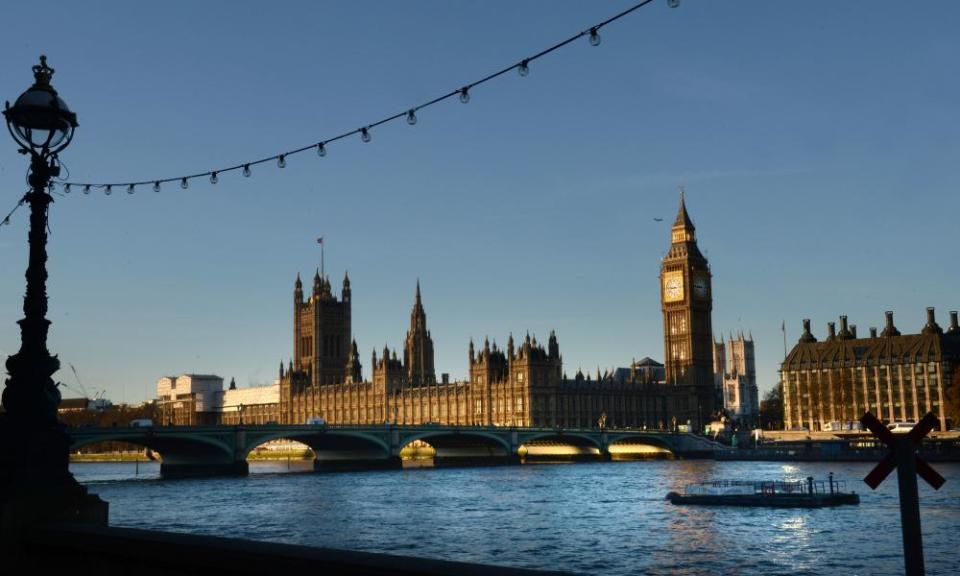Standards committee drops attempt to limit time MPs spend on second jobs

An attempt to limit the amount of time MPs can spend on second jobs has been dropped, with other rules around lobbying tightened up to avoid a repeat of the Owen Paterson scandal.
Changes to the MPs’ code of conduct were considered by the Commons standards committee after outcry over Paterson’s outside interests and the revelation that the former attorney general Geoffrey Cox accrued more than £6m as a lawyer since entering parliament.
The rows sparked complaints that some MPs were too focused on external business interests and not spending enough time representing constituents. An investigation by the Guardian last November found that a quarter of Conservative MPs held second jobs.
Though some senior government ministers supported the idea of capping the amount of time spent or earnings from MPs’ second jobs, the standards committee said that without cross-party agreement on reform, the system should stay as it is.
It did recommend implementing an outright ban on MPs providing paid parliamentary advice, consultancy or strategy services.
The report also said MPs who take on outside work should have to have a written contract that explicitly states their duties cannot include lobbying ministers or officials, or providing advice on how to influence parliament.
There was also concern that ministers could get away with providing fewer details about what they receive in the less regularly published transparency data for declaring benefits and hospitality than they would declare in the MPs’ register of interests.
Under the recommended changes, ministers would have to declare any gifts they receive in both places.
At the same time, a new “safe harbour” provision for MPs would mean they could not be held responsible for inadvertent breaches of the rules if they were following advice from the relevant authorities.
But a proposal to ban MPs from making “unreasonable and excessive personal attacks in any medium” has been put on hold.
The proposal – which was primarily aimed at the “abusive use” of social media – could have led to MPs accused of breaking the ban facing investigation by the parliamentary commissioner for standards, leading to possible sanctions.
Chris Bryant, the committee chair and Labour MP, urged colleagues to read the report in full and to back the recommendations when they come to the Commons for a final decision.
“The last year has shown that the public cares passionately about standards in parliament – and so do MPs,” he said.
“These proposals, if accepted, will not only improve checks and balances on MPs, and shine a light on any wrongdoing, but will also provide new clarity and support to MPs to avoid inadvertent breaches of the rules.
“Every generation of MPs holds membership of the House in trust for the next generation. It can either burnish the House’s reputation or tarnish it.”

 Yahoo Movies
Yahoo Movies 